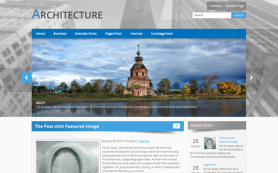Cybersecurity is becoming increasingly important in both our professional and private lives. Whether we are surfing the internet ourselves or providing a web service for other users, we want to make sure our data and transactional information stays save. There are several steps you can take to protect yourself and others. From using a VPN on your end when you are using the internet, to giving website users a secure communication channel to begin with. How do we secure our web services to ensure user and company data safety?
The Process of Accessing Websites
If we want to take measures to provide users with a secure experience, it helps to understand what happens when we use the internet. The basic process from using a router and its internet connection to make a device display a website follows simple steps:
The router we use gives us a dedicated IP address. It includes information about the internet user, their location, and the provider they are using. When we use a browser and type in a web address, our device’s network card sends a request to the server where the website and its contents are stored. This server can use the IP address to send the requested information back to the user who wanted to access the website. Our browser uses this information to show us the content of the URL we requested.
This communication between the network card and the web server leaves us vulnerable. Someone who were to access the information could find out who was sending the request, what they wanted to look at, and any other potential data they were transmitting, like account data and passwords. Technology we use to secure our web access and any communications typically aim at obscuring this data by using encryption and authentication processes.
Ways to Secure Website Access
How do we, as website owners, make using our website safer? There are several things we can do to provide our website users with a secure service. These are some of them:
Secure Hosting
When we own a website, it is hosted on a web server. Typically, we use a hosting service. They own the necessary server hardware and allow us to rent a spot to store our data, so internet users can access it. If they want to look at our website, they send the request to this host, who in turn provides them with access to our content.
Making sure this host is a professional service is integral to giving internet users a secure website. If we really want to make sure a web server is safe, we can host our website ourselves. To do so, we need to own the appropriate hardware. You need a device (like a laptop or PC) with a large file storage, powerful firewalls and access to a strong internet connection.
One way to ensure your users a fast and secure communication is to host your website using a seedbox. It is a device specifically set-up for seeding and downloading torrents. Torrents are a quick and secure way of transferring data. Instead of accessing a file itself, the torrent allows you to download data from other users in the torrenting network.
This makes the process of accessing the information both fast and harder to trace, since there is no one destination where the file was saved and downloaded from. Cheap seedboxes are a great way to coordinate torrents and allocate bandwidth to the peers who access and share your data with others in the network.
Security Certificates
When you host a website, you need to choose a communication protocol and encryption methods. The most prevalent acronyms you will find for these are:
- SSL | Secure Sockets Layer – This security measure allows for encrypted communication between a website and a web browser. It has widely been replaced by TLS.
- TLS | Transport Layer Security – It allows for the same encryption process and data privacy as SSL, but is more widely used today. The terms are often used synonymously.
- HTTPS | Hypertext Transfer Protocol Secure – This protocol allows web users to use SSL/TLS certificates to establish secure connections.
We use the HTTPS to contact a web server. During this process, the SSL/TLS and their encryption keys secure the transferred data until it reaches its destination. These keys only apply to the current session and therefore cannot be used to decrypt just any data transfer from and to the server.
These protocols and encryption are typically part of a professional hosting service. For WordPress-Websites, for example, there are SSL plug-ins you can use for any SSL certificate you have purchased from a provider. If you host your website yourself, you will need to install an ACME client to generate SSL/TLS certificates and install them to your hosting admin area.
Conclusion
A signifier like the padlock next to a URL in your browser or the HTTPS prefix lets web users know that a website is secure to use. The encryption ensures that usernames, credit card numbers and passwords are safe. Only one person can access the data that is being transferred by providing it with a session en- and decryption key.
Additional measures, such as seedbox torrent hosting, can make the up- and downloads for your users faster and allow for harder to trace downloads collected from multiple points of origin. Whether you are hosting yourself or using a professional hosting service, make sure your website will be transmitted with the appropriate encryption level to ensure your users’ data safety.
 Members Area
Members Area




